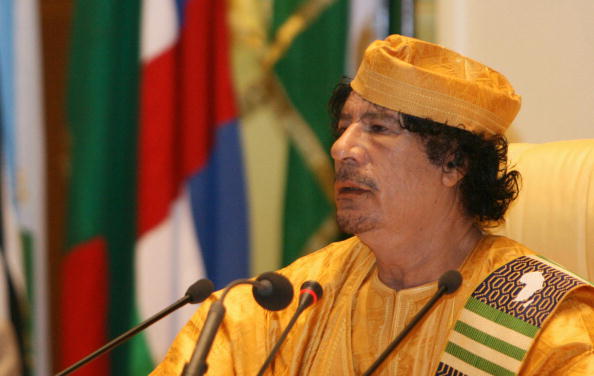Tripoli – With Libya’s presidential election set to be delayed, here is a timeline of the chaos that has gripped the country since a revolt overthrew dictator Muammar Gaddafi in 2011.
Authorities overseeing the North African nation’s first presidential elections confirmed Wednesday that holding them as scheduled is “impossible” and suggested a month-long delay.
2011: Gaddafi killed
Encouraged by Arab Spring uprisings in Tunisia and Egypt, protests erupt in Libya in February 2011.
The United States, France and Britain give military backing to what becomes an armed revolt in the oil-rich country.
Kadhafi, in power for 42 years, flees the capital Tripoli but rebels capture and kill him on October 20.
In August 2012, the rebels hand power to a transitional authority, the General National Congress (GNC).
2012: Foreign missions targeted
A security deteriorates, US ambassador Chris Stevens and three American staff are killed in a September 11, 2012 attack on the consulate in Libya’s second city, Benghazi.
An Al-Qaeda-linked jihadist group is blamed.
A car bomb in April 2013 targets France’s Tripoli embassy, wounding two French guards.
Most foreign diplomats leave the country.
2014-2016: Rival administrations
Legislative polls are held in June 2014, producing a lower house of parliament – the House of Representatives – dominated by anti-Islamists.
But Islamist-led militias contest the results and storm Tripoli in August, restoring the GNC to power.
The internationally recognised House of Representatives takes refuge in the eastern city of Tobruk.
A rival body equivalent to Libya’s senate and formally known as the High Council of State is established in Tripoli in the west.
Libya thus finds itself with two administrations and two legislatures.
In December 2015, after months of talks, the rival parliaments sign an accord in Morocco establishing a Government of National Accord.
In March 2016, its head Fayez al-Sarraj arrives in Tripoli to install the new administration, but eastern military chief Khalifa Haftar – and the HoR – refuse to recognise it.
2019: Haftar’s offensives
Haftar, who has battled jihadists in Benghazi for three years, announces the second city’s “total liberation” in July 2017.
In January 2019, he surges into oil-rich southern Libya, seizing the region’s capital, Sebha, and one of the country’s main oil fields.
In April, he orders his Russian-backed troops to “liberate” Tripoli from “terrorists and mercenaries”.
The offensive stalls in the city’s southern reaches and, after a year of ruinous fighting, Turkey-backed western forces push him back to central Libya.
In June 2020, Tripoli’s forces, backed by Turkey, say they have overrun Haftar’s last western stronghold, driving out Haftar’s fighters who are backed by Russia, Egypt and the United Arab Emirates.
2020-2021: Talks and tensions
The rival administrations sign a “permanent” ceasefire agreement in October after UN-hosted talks in Geneva.
The following month in Tunis they agree to hold parliamentary and presidential elections in December 2021.
Libyan delegates to the UN process approve a unity government headed by interim prime minister Abdulhamid Dbeibah, which takes office in March 2021 charged with leading the country to the elections.
Election wrangling
In September, the eastern-based parliament adopts a law governing the legislative elections, also ratifying a text governing the presidential poll, which critics say favours Haftar.
In early October, the parliament in Tobruk rubber stamps the presidential poll for December 24 but postpones the legislative elections to January.
World powers meeting in Paris in mid-November urge Libyan leaders to stick to the election timetable, and say foreign mercenaries should leave.
Kadhafi’s son Seif al-Islam, Dbeibah and Haftar all throw their hats into the ring, stirring divisions over who should be allowed to run.
Tensions rise
As election day approaches, gunmen linked to Haftar exchange artillery and small arms fire with local security forces in the main southern city of Sebha on December 14.
Two days later armed groups take up positions at key sites in Tripoli after the sacking of senior military commander.
On Monday gunmen force four key oilfields in the desert south to shut, and on Tuesday armed group mobilise in the suburbs of the capital, blocking some roads.
Follow African Insider on Facebook, Twitter and Instagram
Picture: Getty Images
Source: AFP
For more African news, visit Africaninsider.com


